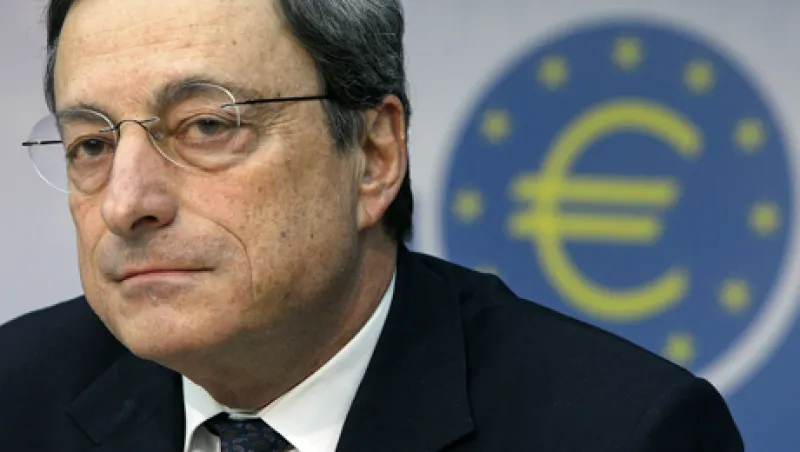
Draghi’s Mixed Bag Does Not Include Monetary Financing
Euro zone markets dipped after European Central Bank president Mario Draghi’s announced a mixed-bag of proposals to calm the euro zone crisis, but fell short of monetary financing.
David Turner
December 8, 2011


